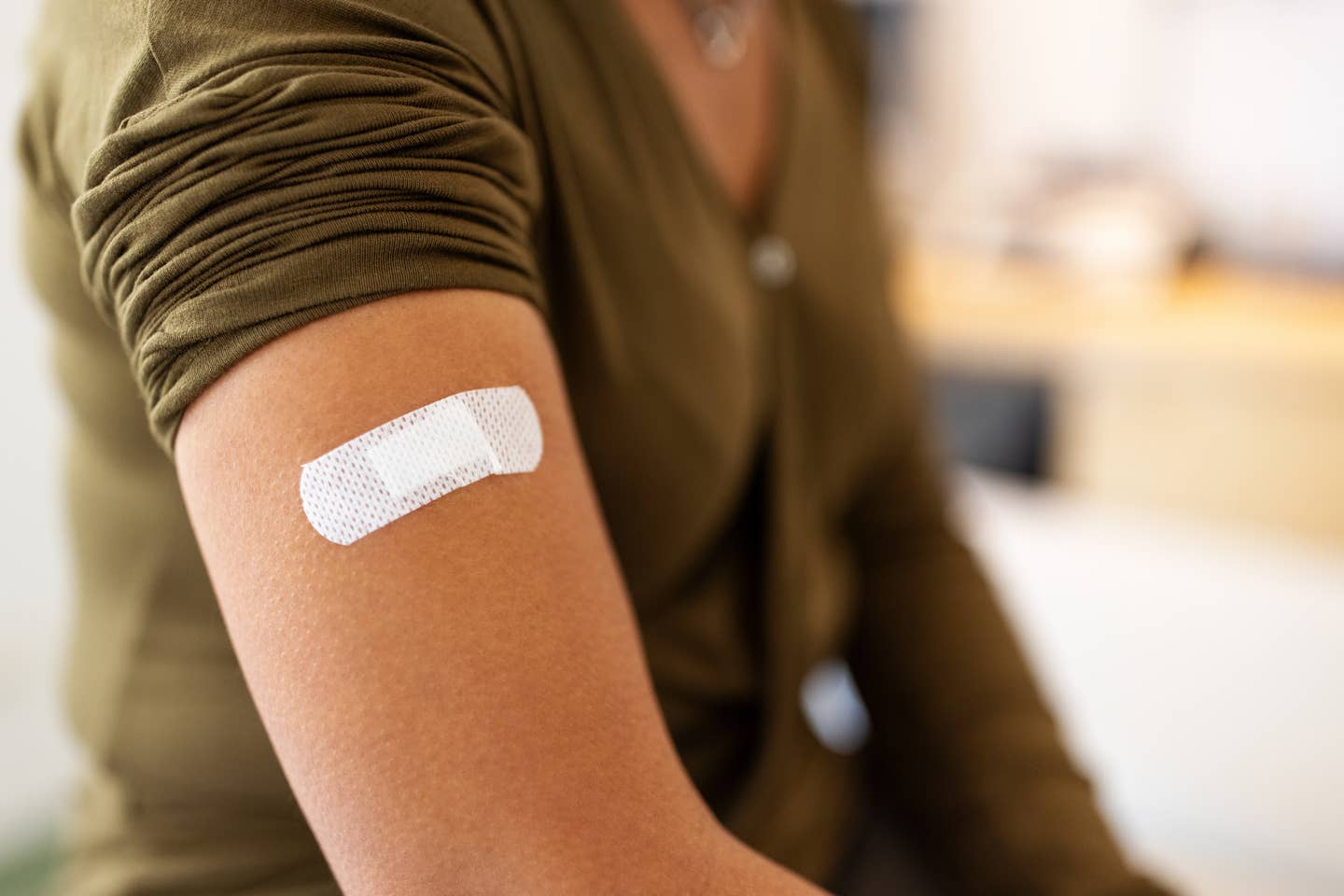
New Study Finds Eating Healthy Makes the Coronavirus Vaccine More Effective
With coronavirus vaccines being distributed nationwide, finally, we’re all breathing a collective, hopeful sigh of relief. There is light is at the end of the pandemic tunnel. So while we wait and look forward to our turn to roll up our sleeve, a new study just found that there is something real you can do to improve your chances of having the best results from getting vaccinated, and building the strongest antibodies when the vaccine enters your body.
A new study just published in Perspectives on Psychological Science titled “Psychological and Behavioral Predictors of Vaccine Efficacy: Considerations for COVID-19,” helps underscore the importance of eating a healthy diet, as it relates to the vaccine’s efficacy.
Healthy Eating Could Be Your Immune System's Top Defense Against Virus
For their research, scientists at the Ohio State University (OSU) reviewed 49 vaccine studies in humans from the past 30 years that show how different conditions impact the body's immune system. They discovered that stress, depression, and unhealthy lifestyle choices (smoking, eating junk food) can negatively affect the body's immune response when exposed to vaccination. On the flip side, improving your health and making smart lifestyle decisions (eating a diet high in plant-based foods) can bolster our immune response to a vaccine.
"When we think of vaccine efficacy, we often think of the vaccine itself. My motivation was to draw attention to the fact that we [as subjects] bring important factors to the table as well — and those factors are modifiable," says Annelise Madison, lead author of the paper, and a graduate student in clinical psychology at Ohio State, in a Science Daily statement.
"If we can address them now, when most of the world has yet to receive the vaccine, we have the chance to make our response to the vaccine quicker, more robust, and lasting,” she continues. In the study, the team at OSU noted that most people are not reacting to the pandemic stress with healthy habits, but are actually going the wrong direction, according to recent data that shows an increase in alcohol sales, more overeating (and higher sales of junk food), and a dip in daily physical activity, as recorded by those who wear Fitbits.
While the study does not suggest specific foods to eat to boost your immune response to the vaccine when it's your turn to receive yours, it’s safe to say that junk foods, processed bags oof chips, boxes of crackers and cookies and, red meat that's laden with saturated fat are not on the "healthier" diet list. So skip the cheeseburger and opt instead for a salad rich in plant-based foods and whole grains, of the quinoa and kale variety. The antioxidants and high-fiber content of a whole food plant-based approach will create a better host system to welcome the new antibodies into your immune arsenal.
Since what we eat and drink and how active we are impacts all aspects of our health and wellbeing, these are things that we can control (“modifiable,” as Madison calls them). We may not be able to choose how soon we get the vaccine, but until then, we are able to influence our body’s response when we get it.
A Plant-Based Diet Can Boost Immune Protections
While more research is needed to replicate these findings with regard to the new coronavirus vaccines, it’s well-known that a whole-food, plant-based diet can help protect and enhance immunity, to all viruses. Some doctors are urging people to go plant-based now, in light of coronavirus, and to improve their long-term health. From eating ‘shrooms to loading up on fiber, here are 11 tips to boost your immune system, and here are 15 immune-supportive foods to build your natural defenses and safeguard your health.
If “you are what you eat,” we’d like to be a rainbow-filled garden, metaphorically, with immune-bolstering superpowers, until the day we get that first inoculation. Our arms will be ready.
More From The Beet






